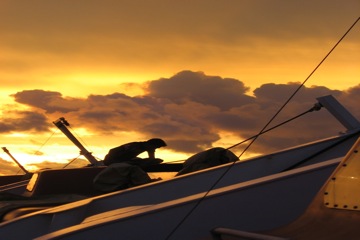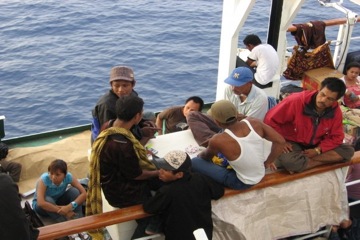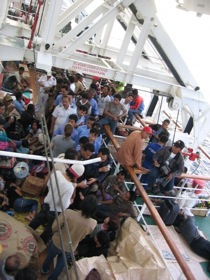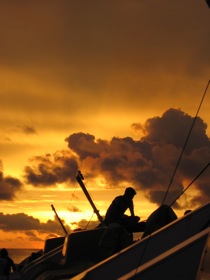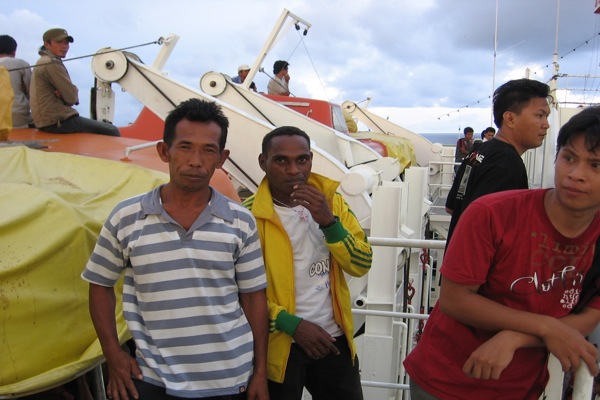
All photos: author
How on Earth did I get here?
The cramped lifeboat, rigged twenty feet above the ship’s main deck, swayed in the afternoon storm.
I had been sandwiched between two families outside when the downpour began. Now, having followed a band of Indonesians up a ladder into the covered lifeboat, I hunched over, trying to calm my stomach as they sang a local pop song led by a badly tuned guitar.
